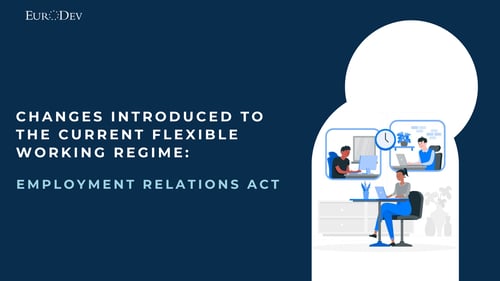Travel to Europe from US and Canada: Restrictions per Country
Recently, the US and Canada have changed their restrictions for allowing European citizens to enter the country. The same story goes for European countries that have decided to open up again for US and Canadian travellers.
In this blog, we provide an overview of the different regulations to help business travellers with their future flights. Additionally, if you are planning to travel to Europe from the US and Canada to visit some industry tradeshows or hot business leads, this information is essential.
Restrictions for Travel to Europe From Canada
Currently, all Canadian citizens are able to enter the European Union because Canada is on the EU’s safe list. In order to leave Canada, starting October 30, 2021, all Canadian citizens have to show proof of being fully vaccinated in order to board. Moreover, the Canadian government will put a transition phase in place from the 30th of October to the 30th of November.
In this one-month time span, travellers can still show a negative PCR test for traveling. It is important that the test has been done no more than 72 hours before the travel date. After the 30th of November, only fully vaccinated travellers will be allowed to board the plane.
Additionally, each country in Europe has its own regulations for travellers from Canada. Below, you will find an overview of the regulations for the main European countries.
France

In June 2021, France opened its borders to Canadian citizens. Both vaccinated and unvaccinated tourists are allowed to enter the country. Vaccinated Canadians only need to show proof of vaccination, while for the unvaccinated ones, a PCR test taken 72 hours before the flight or an antigen test taken no later than 48 hours before the flight is required.
For more information, check the France Diplomacy website.
Germany

In July 2021, Germany opened its borders to Canadian citizens. Proof of vaccination or recent recovery is required. For unvaccinated travellers, a negative PCR test taken 72 hours before the flight or an antigen test taken 48 hours before the flight is required.
For more information, check the German Missions in Canada.
Italy

To enter within the Italian borders, Canadian travellers have to show either proof of vaccination, proof of recent recovery (within the last 180 days) or a negative PCR or antigen test result taken no longer than 48 hours before the flight.
For more information, check the Ministero della Salute.
Netherlands

Entering the Netherlands is simple for vaccinated citizens from Canada because they only have to show their proof of vaccination, while for unvaccinated passengers, a PCR test taken a maximum of 48 hours before the flight is required or an antigen test taken 24 hours before the flight.
For more information, see this checklist.
Spain

Canadian citizens are allowed to enter the Spanish borders. Citizens are allowed to enter either with proof of vaccination, proof of recovery or by showing a test. Tests allowed are PCR tests carried out within 72 hours prior to the arrival in Spain or a Rapid Antigen Test carried out within 48 hours before the arrival in Spain.
For more information, check this website.
The UK

Vaccinated Canadians can enter the UK without any test, but they must get tested a maximum of two days after their arrival. The test must be booked before departure. Additionally, if you stay in England for less than 2 days, you still need to book and pay for a coronavirus test.
On the other hand, unvaccinated travellers must take a COVID-19 test a maximum of 3 days before traveling to England. In addition, unvaccinated travellers must book and pay for a test on the 2nd day of arrival and one for the 8th day in the UK.
Moreover, unvaccinated Canadians must quarantine for 10 days at the place they are staying. If you are staying for less than 10 days, you still need to book for tests in advance and quarantine for the time you will stay. If you are traveling to Scotland, Wales or Northern Ireland, different rules may be in place.
Lastly, after entering a country in the EU, Canadians can show either proof of vaccination, a negative test result or proof of recovery to move between countries that are in the EU.
For more information, see this official guidance.
Restrictions for Travel to Europe from the US
At the moment of writing, US citizens are allowed to travel to Europe from the US. Each country in Europe has its own regulations, which each traveler must comply with.
Below, you will find an overview of the requirements imposed by each country for travelers coming to Europe from the US. The US Department of State website offers an overview of all the countries that US citizens can enter and their regulations.
France

US citizens are allowed to enter France. Fully vaccinated travelers just need to show proof of vaccination. Full vaccination means that it has already been two weeks since your second shot of Pfizer, Moderna or AstraZeneca, or it has been four weeks after your J&J shot.
Unvaccinated travelers are required to take a PCR test taken 72 hours before the flight or an antigen test taken no later than 48 hours prior to departure. Additionally, unvaccinated travelers must self-isolate for 7 days upon arrival and take a PCR test at the end of the seven days.
For more information, check the embassy website for France.
Germany

Germany is open to US citizens. All vaccinated citizens can enter the German borders freely. Unvaccinated citizens will have to demonstrate a valid reason for entering the country.
Additionally, non-vaccinated travelers can show proof of recovery in the last six months, or a negative PCR test taken 72 hours before the flight or an antigen test taken 48 hours before the flight is required.
For more details, check the embassy information for Germany.
Italy

US citizens are allowed to enter the Italian borders. All travellers must complete the Passenger Locator Form. Additionally, if travellers have been vaccinated with both doses or show proof of recovery from COVID-19, they will not need to self-isolate upon their arrival.
On the other hand, US citizens who have not been vaccinated have to get tested either with a molecular or antigenic test carried out within 72 hours prior to entry into the country. Travelers that need a test will have to self-isolate for 5 days upon their arrival and get tested after the 5 days.
For more information, check the Ministero della Salute.
Netherlands

US citizens are allowed to enter the Netherlands. The US is considered a 'high-risk area' (not 'very high-risk'), and for this reason, self-isolation upon arrival is not required. If travellers have been vaccinated, they just need to show proof of vaccination to enter the Dutch borders.
For unvaccinated travellers, it is required to show proof of testing. The test can either be an antigen test taken 24 hours before departure or a PCR test taken no more than 48 hours before departure.
For more information, check this governmental website.
Spain

US citizens are allowed to enter the Spanish borders. Travellers are allowed to enter either with proof of vaccination, proof of recovery or by showing a test. Tests allowed are a PCR test carried out within 72 hours prior to the arrival in Spain, or a Rapid Antigen Test carried out within 48 hours before the arrival in Spain.
For more information, check the Spain Travel Health website.
The UK

Vaccinated US citizens can enter the UK without any test, but they have to get tested a maximum of two days after their arrival. The test has to be booked before the departure. Additionally, if you are going to stay in England for less than 2 days, you still need to book and pay for a coronavirus test.
On the other hand, unvaccinated travellers must take a COVID-19 test no more than 3 days before traveling to England. In addition, unvaccinated travellers have to book and pay for a test on the 2nd day of arrival and one for the 8th day in the UK. Moreover, unvaccinated US citizens must quarantine for 10 days at the place they are staying.
If your stay is less than 10 days, you still need to book the tests in advance and quarantine for the time you will stay. Different rules may be in place if you are traveling to Scotland, Wales or Northern Ireland.
Lastly, after entering a country in the EU, US citizens can show either proof of vaccination, a negative test result or proof of recovery to move between EU countries.
For more information, check the UK government's website.
Disclaimer: The information provided in this blog is accurate (26 October 2021), but considering that the restrictions are changing fast, we recommend checking the government website of the desired country.
Category
Related articles
-

The Employment Relations Act: Changes to the flexible working regime
4 December 2023Explore changes in flexible working regulations with the Employment Relations Act. EuroDev guides...
Read more -

Policy Updates: Adapting HR Practices to New Parental Protection Laws
23 November 2023Explore the latest insights on parental protection laws, ensuring compliance and fostering a...
Read more -

New EU Regulations: The EU’s Platform Economy Regulations
9 October 2023EU's new rules for platform workers: enhanced rights, data privacy, and AI transparency. Global...
Read more

